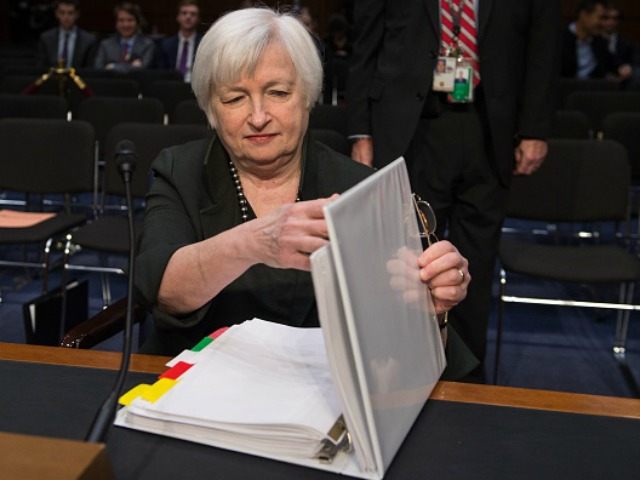The economy added a modest 211,000 jobs in November, in line with economists’ expectations. The jobs report, released Friday, clears the final hurdle before the Federal Reserve takes its expected step to gradually increase interest rates at its next meeting on December 16.
In Congressional testimony this week, Fed Chair Janet Yellen said she would be looking for “a continued solid trend of job creation” in the November jobs report to green-light the first increase in the federal funds rate in a decade.
The Fed has kept the Funds rate, the interest rate the Fed charges banks, at nearly zero since December 2008. The fed Funds rate is the benchmark for interest rates on consumer financial products, i.e. mortgages, business loans, credit card and auto rates. In increase in the Fed Funds rate is likely to ripple through to higher interest rates on consumer loans. The Fed has not raised the Funds rate since June 2006.
While the November jobs report showed overall modest job creation, there remains a great deal of anxiety over how the economy will respond to higher interest rates. In recent days, Democrats and other liberals have called on Yellen to delay an increase in interest rates.
“I do not see a compelling reason for liftoff,” Jared Bernstein, former economic advisor to Vice President Joe Biden said.
“A premature interest rate increase would make it harder for Americans who aren’t yet feeling the economic recovery to get a raise or find a job,” Democrat Ohio Sen. Sherrod Brown (D-Ohio) said when the Fed declined to hike rates in September.
The challenge for the Fed is that, in addition to a zero-percent interest policy for the last seven years, the Federal Reserve has also pumped trillions of dollars into financial markets as part of its Quantitative Easing program. The twin monetary actions were intended to stimulate the economy out of the Great Recession and allow to find its footing on a sustainable path for growth.
While a zero-interest rate regime can boost short-term credit, it also distorts the markets by driving down earnings for savers, lowers overall returns on investments and potential inflates a credit bubble or sparks a rapid growth in inflation. For months, the Fed has been signaling that it is looking to end its robust monetary stimulus.
It isn’t clear, however, that the economy has found its footing for natural growth. Earlier this week, the widely watched ISM manufacturing index measured a contraction in the important sector. The index actually dipped into “recession” territory for the first time in 3 years.
At that time, the Federal Reserve responded with another round of quantitative easing, pumping additional money into the financial markets. The manufacturing index soon recovered from its recessionary trend.
In less than two weeks, however, this latest downturn in manufacturing will be met by a Fed rate hike. Given slowing growth in China and around the world, the increase in the cost of capital is likely to push manufacturing even further into recession.
For Obama’s entire presidency, the economy has stumbled along with just enough growth to avoid recession. The economic recovery has been the weakest in post-war history, but it has been enough to avoid contraction. This minimum growth, however, has come with a back-drop of zero-percent interest rates and trillions in monetary and fiscal stimulus.
The Fed’s likely action to end zero-interest rate policies in less than two weeks comes at an extremely fragile time for the economy. It is increasingly likely that the economy may slip into recession in 2016. This goes a long way to explain growing concerns among Democrats about a rate hike.
The Democrats are already running against history as they seek to hold the White House after Obama’s two terms in office. They are terrified they may have to run against the economy as well.

COMMENTS
Please let us know if you're having issues with commenting.